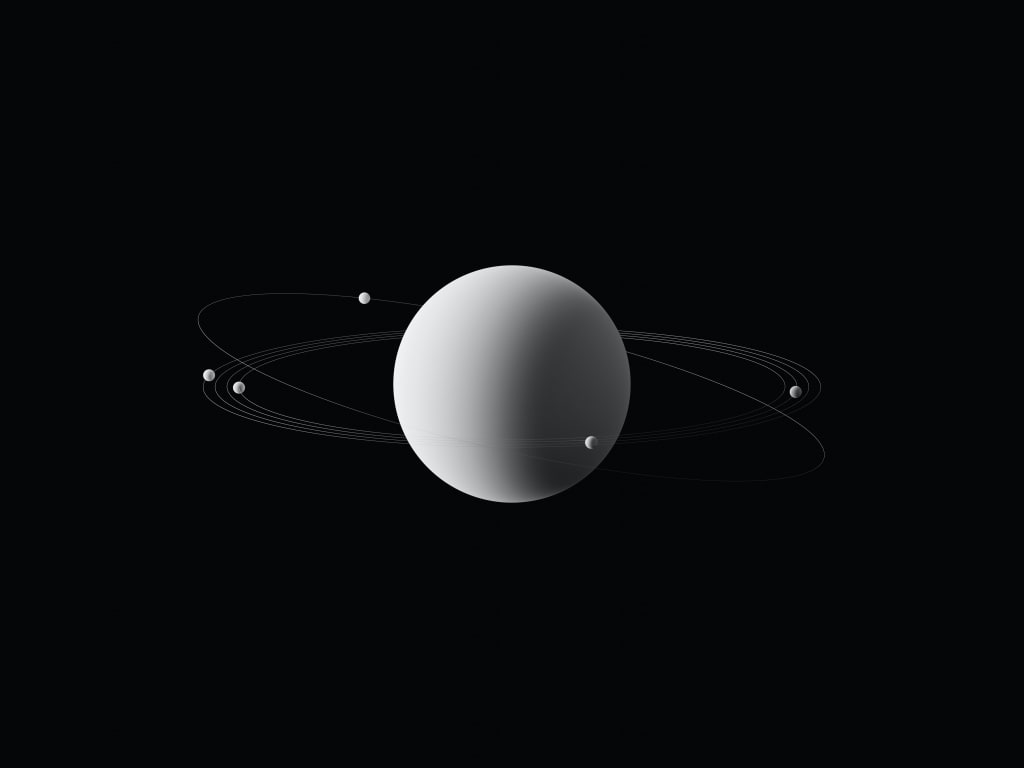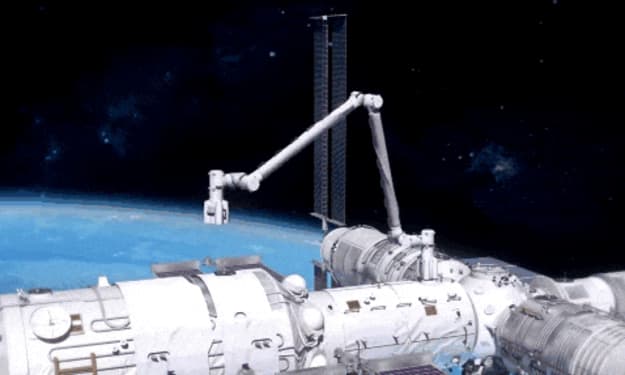What is the meaning of life when it is all destined to die?
The meaning of life's existence

What is the marker that separates humans from animals? Is it the external physical form? Is it a complex and varied form of communication? Or is it the relatively elaborate habits of life? The answer is none of these, for the true mark of distinction is thought.
It is because of this remarkable ability that mankind has been able to overcome all kinds of difficulties time and time again, to emerge from an age of ignorance and backwardness, and to build a glorious human civilisation.
But while thinking has taken mankind out of the realm of the beast and led it into a new era of development, sometimes too much thinking can be a "burden". For example, many of us must have pondered a relatively profound question: what is the meaning of life when it is destined to die from the moment it emerges?
This slightly philosophical question is not new, as scientists have been thinking about it for a long time, and have come up with a standard answer from the discipline that is closest to the nature of the world - physics - the meaning is to carry negative entropy to its to the end.
What does this mean? We'll discuss it later. Let's start by looking at what a world without life would look like: the
From the quiet appearance of the first atoms in a porridge-like quantum state of indescribable colour, to their merger into the first hydrogen molecules, countless hydrogen molecules rapidly collapse under external forces and the first glimmer of brilliance in a pitch-black universe.
In the long time that followed, countless molecular clouds collapsed and burst into light, while at the same time countless lights dimmed and quietly left the scene. Countless cosmic objects rose and fell, came and went in the vastness of space, and together they wrote a magnificent epic of development.
Finally, as the light fades from the countless stars, the glorious universe returns to darkness once again. And when will the darkness fade again this time, no one can know, nor does anyone need to know, after all, everything that happened in this time period is too long ago.
The gears of time continue to turn, and at some unknown moment, an unknown star reaches the end of its life, and with a combination of light and tremendous energy, the star completely disappears from the universe, leaving behind a cloud of "seeds" that will nurture miracles in the future.
As time passed, I wonder how much more time passed before the centre of the seed began to shake, collapse, glow and finally form a familiar yellow dwarf - the Sun. The edges of the seed, in turn, became planets, moons, asteroids and meteorites that wandered around the solar system.
At this point it's pretty clear, because the solar system has taken shape, but there are a few eye-opening coincidences as to whether it will become the solar system we know.
For example, a rocky planet colliding with a water-rich comet that happens to be in a habitable zone that allows liquid water to remain.
Then there are the gas giants on the outskirts of star systems, which coincidentally balance each other out and do not break into the inner solar system and swallow up the inner planets.
Of course, there are many more coincidences like this, and we don't need to look for the reasons why they occur, because even if they were reproduced, the 'familiar' solar system would still be dead and lifeless, as there would be no life involved.
In a few billion years, when the Sun has passed through the main sequence star stage, the red giant stage and finally the white dwarf stage, all the splendour and prosperity will have disappeared, leaving behind only eternal deadness and nothingness. Because of its small mass, it will not be able to leave its "seeds" as the last star did.
Those of you who know the law of entropy know that this series of changes is the best expression of entropy increase, but now that something called "life" has appeared, everything has gone off the normal track.
If the emergence of the sun and the solar system can be perfectly explained by "coincidence", then the emergence of life cannot be explained by "coincidence", because it requires a collection of unconscious atoms to rebel against the irreversible iron law of the universe of entropy. And, to put it bluntly, to defy entropy.
Inspired by this deviant spirit, the atoms formed a variety of molecules, which in turn, through different forms of combination, deformation and distortion, initially formed life capable of exchanging matter with its external environment.
At first glimpse of prosperity, these beings do not know what impact their appearance will have on the world at large, nor do they know what significance their appearance will have, for at this time they are just simple beings - cyanobacteria - without consciousness or awareness.
It is important to note that simplicity does not mean weakness. Over the course of billions of years, they have not only spread across the globe, but have even permanently changed the Earth's environment on their own, laying the foundation for the emergence of more complex life.
When dinosaurs had been abandoned by history, a group of small creatures, the most 'terrifying' in the history of life on Earth, took the stage: Homo sapiens.
If life is destined to die from the moment it appears, then what is the meaning of its existence? In fact, the greatest meaning is two words: to live.
As a member of the Earth's ecosystem, as a member of the Earth's biological species, human beings are not "the chosen ones" at all, and everything they have done since their birth is just to stay alive.
The main reason why humans feel special is that they have evolved with "intelligence", which has allowed them to think and then to search for the meaning of something.
So in the end, we should not ask what is the meaning of the existence of "life", but what is the meaning of the existence of "intelligence".
For mankind, the significance of wisdom is not only that it frees us from the label of 'beast', but also that it helps us to begin the process of civilisation.
Throughout history, the beginnings of civilisation can be traced back more than 10,000 years to the agricultural enlightenment. At that time, humans only had to enslave a small number of animals for meat, and agriculture could provide all other food, making the dividing line between man and beast even clearer.
However, all things in the world are two-sided, and while intelligence has brought benefits to mankind, it has also amplified some of the barbaric traits etched into the DNA. War, slavery, division, oppression, all sorts of bad things have pulled mankind into an eternal quagmire of trouble.
As Albert Einstein said at the time of the successful test explosion of nuclear weapons, humanity will one day be hit hard by itself, or even usher in the regression and end of civilisation.
In short, meaning is an ineffably complex concept given to it by humans. If you ignore the human perspective and look at it from the cosmic perspective alone, life is actually meaningless, just as you would find meaning in a speck of dust on your body?
About the Creator
Vicky
The world is so wonderful, let's get to know the world together!
Enjoyed the story? Support the Creator.
Subscribe for free to receive all their stories in your feed. You could also pledge your support or give them a one-off tip, letting them know you appreciate their work.






Comments
There are no comments for this story
Be the first to respond and start the conversation.